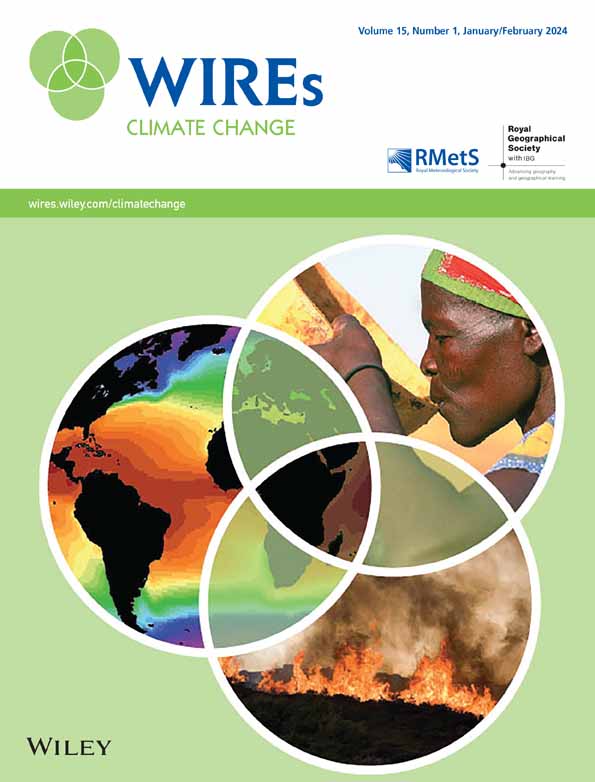应对气候变化的情感途径
IF 10.3
1区 环境科学与生态学
Q1 ENVIRONMENTAL STUDIES
引用次数: 22
摘要
任何形式的个人和集体变化的第一个导火索都始于情绪。它们影响我们的注意力是否以及如何被刺激所吸引,我们如何反思这些刺激,以及我们如何选择行动方案。因此,情绪是社会应对气候变化的核心。我们对情绪研究进行了选择性的跨学科综述,为气候变化应对的假设情绪-认知模型的发展提供信息,然后探索支持三种支持不作为的主流行为反应的情绪先例:冷漠、否认和退缩。然后,我们回顾了可以为情绪触发因素提供支持气候适应和缓解行动信息的研究。最后,我们讨论了两个关键的研究需求:交叉性和跨学科性。解决这些需求将增强我们应对气候紧急情况的能力。本文章由计算机程序翻译,如有差异,请以英文原文为准。
Emotional pathways to climate change responses
The first trigger to any form of personal and collective change begins with emotions. They influence whether and how our attention is drawn to stimuli, how we reflect upon those stimuli, and how we choose courses of action. Emotions are thus at the center of social responses to climate change. We offer a selective, interdisciplinary review of emotions research to inform the development of a hypothetical emotion–cognition model of climate change response, followed by exploration of the emotional precedents supporting three prevailing behavioral responses which support inaction: apathy, denial, and withdrawal. We then review research that can inform emotion triggers to pro‐climate adaptive and mitigative action. We conclude with a discussion of two key research needs: intersectionality and interdisciplinarity. Addressing these needs will enhance our ability to respond to the climate emergency.
求助全文
通过发布文献求助,成功后即可免费获取论文全文。
去求助
来源期刊

Wiley Interdisciplinary Reviews: Climate Change
METEOROLOGY & ATMOSPHERIC SCIENCES-
CiteScore
20.00
自引率
2.20%
发文量
58
审稿时长
>12 weeks
期刊介绍:
WIREs Climate Change serves as a distinctive platform for delving into current and emerging knowledge across various disciplines contributing to the understanding of climate change. This includes environmental history, humanities, physical and life sciences, social sciences, engineering, and economics. Developed in association with the Royal Meteorological Society and the Royal Geographical Society (with IBG) in the UK, this publication acts as an encyclopedic reference for climate change scholarship and research, offering a forum to explore diverse perspectives on how climate change is comprehended, analyzed, and contested globally.
 求助内容:
求助内容: 应助结果提醒方式:
应助结果提醒方式:


